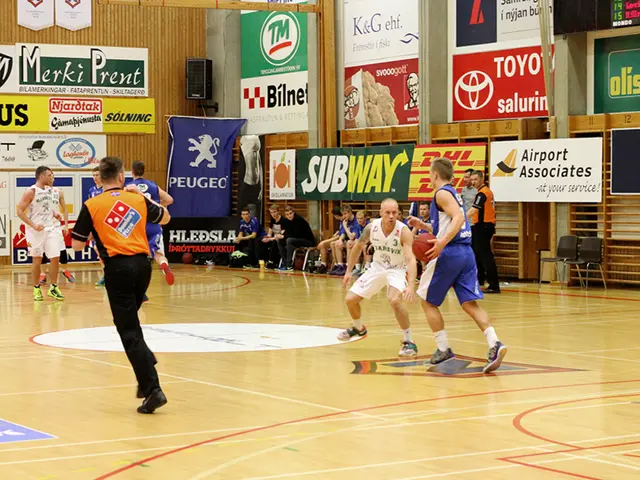Sports companies adapting their supply chains due to Trump's imported tariffs
In the dynamic world of sporting goods, executives are keeping a close eye on political shifts, proactively preparing for potential changes in cost structures and supply chain complexity, according to a survey.
This heightened vigilance comes as the United Kingdom, for instance, has secured favourable tariffs with geographical partners like the European Union. However, these tariffs are higher than they were during Trump's presidency, a fact that is set to be discussed at talks at the Chequers estate this Thursday.
The impact of these tariffs extends to the sporting space, with major firms experiencing fluctuations in their share prices. In response, brands like Nike are adopting strategies to increase resilience. This includes investing in automation and diversifying production locations to countries like China and Indonesia, a move aimed at mitigating uncertain tariffs and complex global supply chains.
Thomas Egli, of Houlihan Lokey's Consumer Group, echoes this sentiment, stating that companies in the sporting goods sector are diversifying sourcing, exploring local production, and investing in automation to increase resilience.
The "Fit for the Future" report by Houlihan Lokey supports this view, suggesting that companies are preparing for increased supply chain complexity due to political shifts. The report also recommends that brands are rethinking sourcing and accelerating automation in response to tariff uncertainty.
Brands are also turning to local production as a strategy to increase resilience in the face of tariff uncertainty. This shift is part of a broader trend where companies are operating in a highly dynamic global environment, where trade policies and supply-chain pressures can significantly influence costs, margins, and operational decisions.
Anchoring a brand to a clear purpose becomes increasingly important as brands expand into new categories and price tiers. Brands that combine operational flexibility with thoughtful brand stewardship will be best positioned to protect value and sustain growth in a fast-changing and unpredictable market.
President Trump's ever-changing tariff policies are indeed forcing sports merchandise and apparel firms to be more flexible. The moves by Trump have had a ripple effect, with tariffs on sports merchandise typically applied to the export cost, not the retail value, meaning these costs are being passed on to the consumer.
In conclusion, the sporting goods industry is navigating a complex global landscape, with brands adapting their strategies to respond to political shifts, tariff uncertainties, and evolving trade dynamics. By diversifying sourcing, exploring local production, and investing in automation, these brands are strengthening their resilience and unlocking new efficiencies in a rapidly evolving trade environment.







